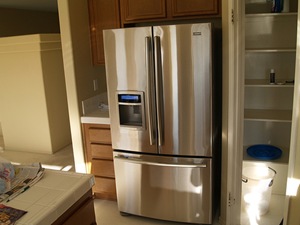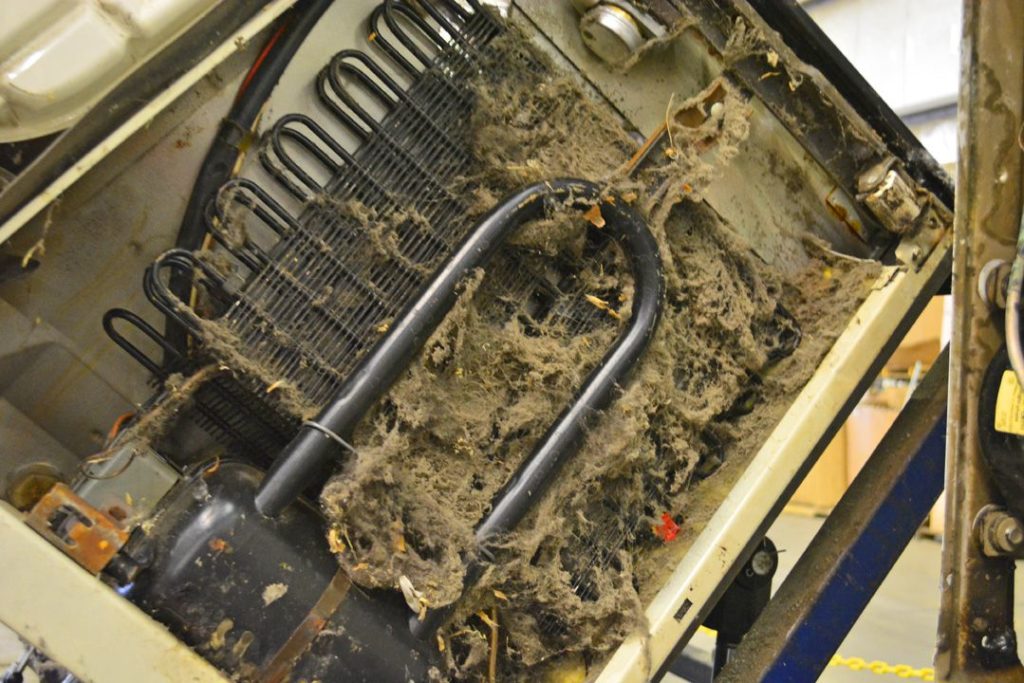
This may come as a surprise but your fridge and freezer may be costing you up to $100 in wasted electricity every year. As I’m sure you already know, these two appliances are energy hogs because they run 24/7!
If you’re interested in saving money on your electricity bill, then managing your fridge and freezer efficiently is a great place to start! Below you will find some tips that you can implement right away to cut down on electricity costs for your fridge and freezer.
1. Move Your Fridge At Least One Inch Away From The Wall

Pulling the fridge one inch away from the wall can cut it’s energy usage by up to 40%, and the amount of floor space is not very noticeable. You can pull it out even more for additional savings, however it isn’t quite as effective as that first inch.
2. Don’t Put Too Much Stuff In The Fridge
Your refrigerator needs air circulations to work properly, so it’s best to ensure that you don’t have too many things in it. You will want to regularly clean out your fridge and toss anything out that is expired, or that you aren’t planning on using.
One way to make this easier is to mark all of your items with washable markers. That way you can quickly glance at the items and know if they are ready to be tossed. Having leftovers in your fridge that go bad can turn into a breeding ground of bacteria, which can contaminate your other items!
Having said that, it’s also important not to leave it too empty. Leaving some bottles of water in the fridge will add thermal mass meaning when you open the door the cold bottles help cool the warm air you let in quicker. This means your fridge doesn’t have to turn on as frequently.
3. Clean Your Coils Regularly

Having clean coils on your fridge is a must to maximize energy efficiency! Over the years a lot of dust is going to build up on your coils, which makes your fridge use more energy to keep it cool. You will want to regularly remove the coils and clean off any dust or debris that is found on them.
Another benefit to doing this is that regular maintenance will extend the life of your fridge!
4. Get a Thermometer

If you don’t have a thermometer yet in your fridge then you need to get one! They are cheap, and easy to setup. Ensuring that your fridge and freezer are operating in the correct temperature can reduce electricity costs because one that is too cold will be wasting energy and one that is operating at a higher heat can cause food to go bad faster.
Your refrigerator should be operating at around 37 to 40 degrees Fahreheit, while your freezer should be at around 5 degrees Fahrenheit.
To test the temperature of your refrigerator put a glass of water with a thermometer in it into your fridge for 24 hours to get the temperature, for your freezer stick a thermometer between two frozen items for 24 hours.

